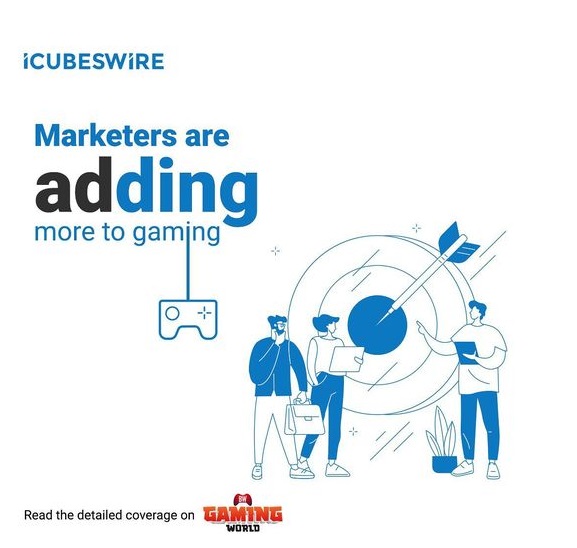Fishing for Talent: Is Recruitment Marketing the New Normal?
The idea for Recruitment Marketing is to build a lead/talent pool that is keen to explore opportunities. It, thus, goes beyond just job postings and offers an attractive proposition for candidates to get to know more about the company, culture, talent, and opportunities.
The Great Resignation or “reshuffle” has made many employers strive to find new, and more effective, ways of attracting talent since the so-called ‘Talent War’ finally got real post-pandemic. It has become a very competitive market and employers can no longer post a job opening and pray and wait for suitable candidates to apply. With video and virtual interviews now becoming even more common, companies do not see location as a limitation and are ready to go beyond existing boundaries to bolster their talent pool.
Marketing professional security has become crucial to attracting candidates as more people value this more than ever during these uncertain times, the pandemic having triggered professionals into reconsidering what they value and seek in their careers. The pandemic, thus, has given a wave of reasons for organizations to redefine the way they recruit. Recruitment Marketing is one technique that has seen an unprecedented rise in its use for attracting and recruiting talent.
What is ‘Recruitment Marketing’?
Recruitment Marketing uses the same principles of traditional marketing to follow customer journeys and touchpoints and offer a personalized experience. It goes beyond just job posting to offer an attractive proposition for candidates to get to know more about the company, culture, talent, and opportunities.
“This is recruitment being creative and thinking like a marketer in a personalized outbound way. Recruitment marketing leverages your employer brand, the value proposition for the targeted segment, and persona. It uses specific platforms, talent communities to market companies, career opportunities and presents job opportunities in a creative and effective way,” says Sarang Brahme, program manager, employee engagement, experience, and employer branding at IT services and consulting company Capgemini.
“The idea for recruitment marketing is to build a lead/talent pool that is keen to explore opportunities. The strategy is to build an influence over the specific talent community across different platforms and present the right opportunity at the right time at the right place to the right candidate,” he adds.
Need of the hour
This is also the first time in the recent past where the balance of power between the recruiter and the candidate has shifted, says Siddharth Hegde, managing director and founder at Ethinos Digital Marketing.
Traditionally in India, it was always a few companies hiring and many candidates chasing a limited number of jobs. Companies could dictate terms, negotiate hard, and mostly hire people on their own terms. “Today, many candidates starting out have multiple options, offers, and choices they can make. It is a company’s need to put their best foot forward to showcase the different things that could be the biggest motivators for their people,” says Hegde.
How can marketing help recruitment?
The goal of Recruitment Marketing is to create awareness about the company and generate interest in candidates to apply.
“Recruitment Marketing has various tools that can help in this process. It is a combination of various elements such as EVP, content, careers website, use of social media, employee advocacy, and so on. The need of the hour is to find the various touchpoints in a candidate’s journey and work towards making the experience seamless with help of the relevant elements,” says Kunjal Kamdar, a talent attraction, brand, and marketing specialist.
Marketing can help companies magnify their recruitment efforts. It wouldn’t be wrong to believe that the people they reach out to as customers for their brands may fit for the jobs they offer. “The marketing performance data you have collected over the years can lend a hand to your talent acquisition team and give them a better understanding of how to communicate with suitable candidates and where to find them. Professionals who have just begun their careers can be easily reached via Twitter, and veterans are more likely to be active on LinkedIn,” says Sahil Chopra, founder, and CEO of a digital marketing agency, iCubesWire.
More than just fishing for the right candidate
An effective Recruitment Marketing strategy is not limited to fishing for the right candidate but to fostering an encouraging environment in the workplace.
Chopra says the goal must be to motivate the workforce and improve their productivity and performance.
“Recruitment Marketing must empower your employees to share their thoughts and suggestions about the company and the changes they would want to see. This acts as a driver for other candidates to recognize a company’s work culture and welcomes them to be a part of it,” he adds.
Platforms used for Recruitment Marketing
Recruitment Marketing platforms are nothing but just the software used by companies to showcase jobs and encourage candidates to apply in a repackaged form. Every job portal and social media tool can be a platform for it.
“There are many platforms that are currently available in the market that can help companies. Some of the widely known platforms include Radancy’s Career Sites product (formerly Talent Brew), CSB (aka J2W/RMK) (by SuccessFactors), Careerbuilder Recruiting Solutions (jobs.net), iCIMS Talent Cloud (formerly Jibe), Select Minds (by Taleo),” says Kamdar
“Several third-party tools provide an opportunity to build a programmatic advertising basis where your target audience is and build a targeted ad network to get more traffic to landing pages to build a talent pool. Re-targeting has also become a key tool for Recruitment Marketing to follow a candidate’s journey on social media and present your brand,” adds Brahme. Hegde says companies need to look for a platform that they can leverage and these can depend totally on the type of audience. Apart from the standard social media platforms, he says, they should think of platforms like Glassdoor, Indeed, Quora, Reddit, Github, Spotify (other podcasting platforms).
“Second, they should build up their own properties, which are repeated annually. This type of recognition builds recognition and repeat visits and buzz that the companies can benefit from. Gamified engagement/contest/hackathon is two-pronged–it helps build the company brand to the correct audience and secondly, it also helps connect the company with a large pool of potential hires whose skill levels they have a fix on and can dip into when needed,” he adds.
Innovative Recruitment Marketing Strategies
Companies have been on the journey to being more innovative to attract the right talent. “Some of these include celebrating employees’ success stories, revamping the careers website, introducing chatbots to make it easy for candidates to navigate and apply, organizing virtual events (Hackathon, competitions, etc),” says Kamdar.
An example of this is Capgemini’s Tech Challenge, which is a mix of gamified platforms, hackathons, and business challenges. “They have been running this for four years and each year have seen the numbers grow significantly. Interesting interview formats are another strategy,” says Hegde. Capgemini India runs a Tech Challenge hackathon every year to gather top engineers to solve key business challenges which help them build a community and talent pool to be hired from. “A few years back, Snapchat utilized the geo-targeting and filters feature of its app to target engineers at Uber and Pinterest to market their job openings,” recalls Brahme.
Chopra of iCubesWire says besides marketing, companies are investing in their existing employees to create a positive work culture. “Companies can leverage Recruitment Marketing strategies to spread their story and attract more professionals. They often have different onboarding programs and encourage employees to rope in like-minded professionals. Companies should focus on how they commit to the career growth of their employees, which will attract more candidates than ever,” he adds.
The Pandemic Push
“Technology is best when it brings people together”- Matt Mullenweg
There has been a considerable usage of tech in the past, but post-pandemic, its relevance, and reach have increased multi-fold. This has not only helped companies but also clients, customers, and talent out there. “Recruitment Marketing is one such important area where there has been a meteoric rise in its usage. The entire candidate journey has transformed and every touchpoint is embedded with tech. This not only helps in saving time and cost but also helps in amplifying the reach. Boundaries are no longer a challenge, and hence it’s good times in the space of Recruitment Marketing,” says Kamdar.
With no second thought, recruitment policies during the pandemic must be centred around the welfare of the employees. “As far as Recruitment Marketing in today’s time is concerned, it is becoming more personalized to attract and engage the desired talent for any role. Therefore, devising effective Recruitment Marketing goes a long way in changing people’s perspectives about your business and employer brand,” adds Chopra.
As Published on:-




